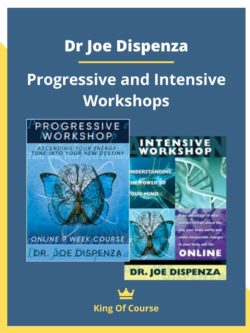Tim Webb – Completing the Mental Status Exam: Practical & Hands-On Lessons from the Field
$199.00 Original price was: $199.00.$33.00Current price is: $33.00.
See all our reviews
Tim Webb – Completing the Mental Status Exam: Practical & Hands-On Lessons From the Field
Master The Mental Status Exam (MSE) With Practical, Hands-On Training
Completing the Mental Status Exam (MSE) accurately is one of the most critical responsibilities for behavioral health clinicians. This course empowers clinicians to perform and document the MSE correctly, improving patient care and enhancing liability protection. The training offers practical insights and guidance beyond typical graduate programs, focusing on real-world challenges clinicians face when diagnosing complex psychiatric and medical conditions.
Why the Mental Status Exam Matters For Your Practice
The Mental Status Examination is the cornerstone of behavioral health assessment. Yet many clinicians receive insufficient training on this critical skill during their graduate education. This comprehensive training addresses this gap by providing:
- Life-saving differential diagnosis skills to distinguish psychiatric symptoms from medical conditions like brain tumors, delirium, head injuries, and endocrine disorders
- Evidence-based assessment techniques aligned with American Psychiatric Association (APA) guidelines
- Practical tools for identifying high-risk patients including those with suicidal ideation, homicidal tendencies, or medical emergencies
- Enhanced documentation practices that improve clinical outcomes while providing legal protection
Key Learning Objectives for Healthcare Professionals
In this practical training, you will learn to:
- Utilize multiple information sources for accurate differential diagnoses in clinical practice
- Assess psychotic symptoms to determine psychiatric, substance abuse, or medical origins
- Administer and interpret evaluative tools appropriate to various clinical settings
- Apply APA guidelines to structure your mental status examinations
- Conduct rapid, effective risk assessments for suicide and violence
- Differentiate mental health conditions from substance abuse and medical presentations
- Follow professional, ethical, and legal guidelines when conducting MSEs and recommending treatment
Comprehensive Course Content Based on Clinical Experience
APA Guidelines on Necessary Elements
- Distinguishing mood vs. affect in clinical presentations
- Effective questioning techniques (open-ended vs. closed-ended)
- Structured observation methods for comprehensive assessment
- Speech pattern analysis for differential diagnosis
- Sleep-mood relationships in psychiatric assessment
- Appetite-mood correlations in comprehensive evaluations
Components of Comprehensive Mental Health Screening
- Multi-source information gathering techniques
- Medication evaluation and potential interactions
- Collateral information collection from family and support systems
- Substance screening protocols and interpretation
- Interdisciplinary collaboration with other providers
- Medical record integration for comprehensive care
- Documentation best practices for legal protection
- Special population considerations across the lifespan
Psychotic Symptom Assessment and Understanding
- Auditory hallucination classification and clinical significance
- Visual hallucination correlation with medical conditions
- Substance-induced hallucination identification
- Delusion type analysis for differential diagnosis
- Medication side effect recognition
- Legal competency determination frameworks
- Real-world case studies and clinical scenarios
Evidence-Based Assessment Tools
- St. Louis University Mental Status Examination (SLUMS) administration and scoring
- Folstein Test/Mini-Mental Status Exam (MMSE) implementation
- Clinical Institute Withdrawal Assessment (CIWA) application
- Suicide/Self-Harm Scale utilization and risk stratification
About Your Expert Instructor: Tim Webb, M.A. Ed., LPC
Tim Webb brings exceptional qualifications to this training as the founder and CEO of The FOCUS Group, PLLC, a clinical training and consultation agency based in Clemmons, North Carolina. His expertise in mental health crisis management is backed by extensive experience:
- Clinical leadership roles including intake director and crisis services manager in community settings, clinics, and emergency rooms
- Program development expertise in residential facilities and crisis response systems
- Advanced education with a Master’s in Counseling from Wake Forest University
- Unique interdisciplinary background combining mental health, emergency services, and specialized training in non-violent crisis intervention
- Developer of the Stay Safe system for managing physically aggressive clients
This distinctive combination of clinical expertise, administrative experience, and crisis management knowledge makes Tim Webb uniquely qualified to deliver this essential training on the Mental Status Exam.
Who Should Attend This Mental Status Examination Training
This training is specifically designed for:
- Psychologists seeking to enhance assessment skills
- Psychiatrists looking for practical differential diagnosis techniques
- Nurses and Nurse Practitioners working in behavioral health settings
- Social Workers conducting mental health evaluations
- Counselors providing front-line mental health services
- Marriage and Family Therapists addressing complex family dynamics
- Case Managers coordinating comprehensive care
- School Counselors identifying at-risk students
- Addiction Professionals assessing co-occurring disorders
Disclosure Information
Financial: Tim Webb is the Founder/CEO and author for The FOCUS Group, PLLC. He has an employment relationship with Daymark Recovery Services. He receives a speaking honorarium from PESI, Inc. Tim has no relevant financial relationships with ineligible organizations.
Non-financial: Tim Webb has no relevant non-financial relationship to disclose.
Conclusion: Transform Your Mental Status Examination Skills
The Mental Status Exam is more than just a clinical requirement—it’s a life-saving skill that requires expertise, precision, and practical knowledge. This training by Tim Webb provides the hands-on lessons and field-tested techniques that are often missing from graduate education.
By completing this comprehensive program, you’ll gain confidence in your assessment abilities, learn to identify potentially life-threatening conditions, and develop documentation practices that protect both you and your patients. The practical, hands-on approach ensures you can immediately apply these skills in your clinical practice.
Don’t miss this opportunity to learn from a recognized expert in mental health crisis management and elevate your Mental Status Examination skills to new levels of clinical excellence.
TERMS OF SALE
After you make payment, we will send the link to your email then you can download the course anytime, anywhere you want. Our file hosted on Pcloud, Mega.Nz and Google-Drive
KING OF COURSE – The Difference You Make
More Courses: NLP & Hypnosis
Q & A
Related products
NLP & Hypnosis
NLP & Hypnosis
NLP & Hypnosis
Health & Fitness
Health & Fitness
Health & Fitness
NLP & Hypnosis















Reviews
There are no reviews yet